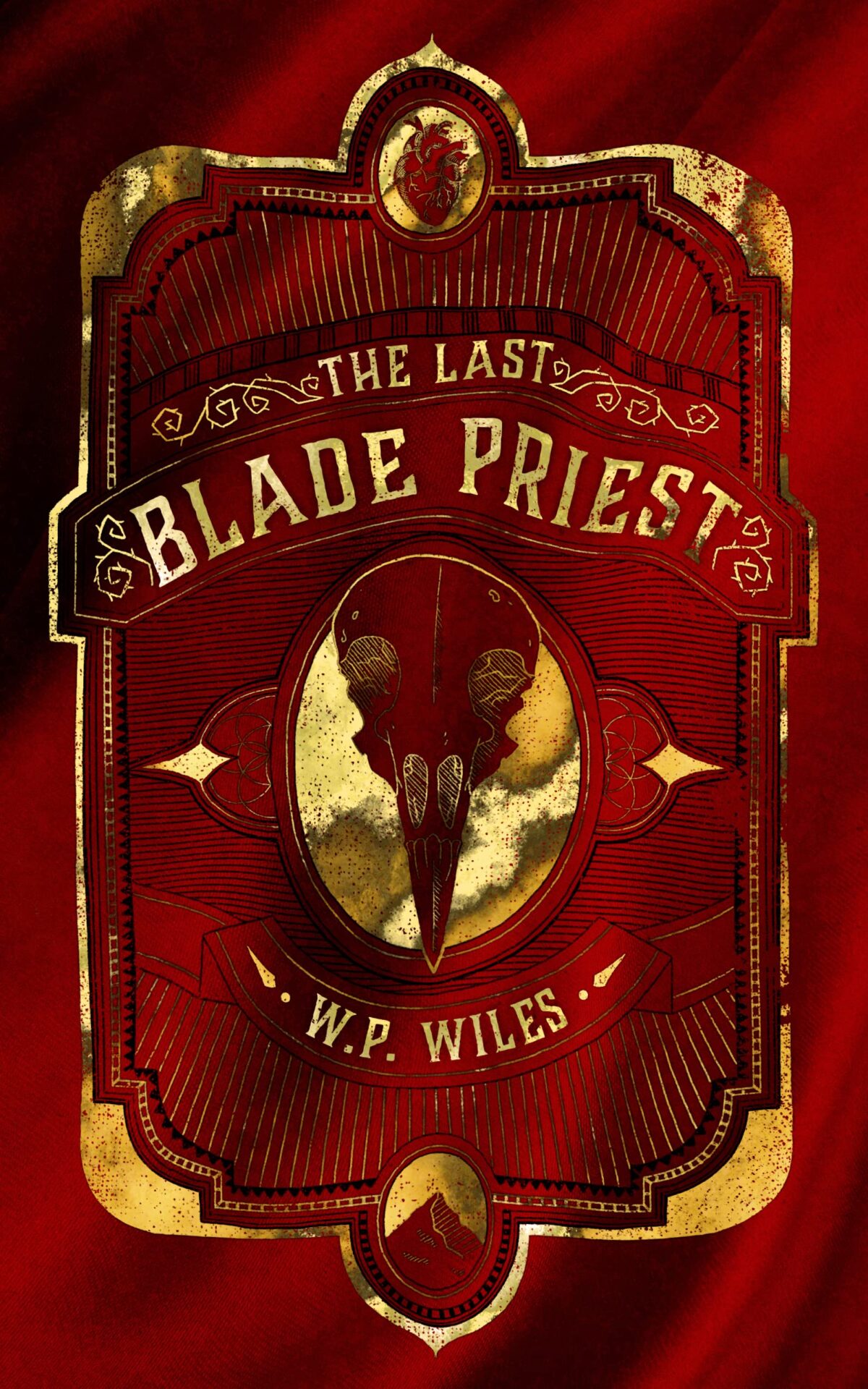
W.P. Wiles is joining us today to talk about his novel, The Last Blade Priest. Here’s the publisher’s description:
Inar is Master Builder for the Kingdom of Mishig-Tenh. Life is hard after the Kingdom lost the war against the League of Free Cities. Doubly so since his father betrayed the King and paid the ultimate price. And now the King’s terrifying chancellor and torturer in chief has arrived and instructed Inar to go and work for the League. And to spy for him. And any builder knows you don’t put yourself between a rock and a hard place.
Far away Anton, Blade Priest for Craithe, the God Mountain, is about to be caught up in a vicious internal war that will tear his religion apart. Chosen from infancy to conduct human sacrifice, he is secretly relieved that the practice has been abruptly stopped. But an ancient enemy has returned, an occult conspiracy is unfolding, and he will struggle to keep his hands clean in a world engulfed by bloodshed.
In a series of constantly surprising twists and turns that take the reader through a vividly imagined and original world full of familiar tensions and surprising perspectives on old tropes, Inar and Anton find that others in their story may have more influence on their lives, on the future of the League and on their whole world than they, or the reader imagined.
What’s W.P.’s favorite bit?

W.P. WILES
In the midst of a vast and inaccessible system of mountains there is a peak unlike any of the others. This colossal shimmering spire is unsettling to look at for too long, and it casts off a strange lightless radiance. Anyone that is able to reach this bizarre peak can find themselves granted godlike powers. But men and women are latecomers to his desolation, and thus we miss out on its incredible abilities.
The creatures that get there first are, of course, birds. A species of mountain vulture, in fact, a shade too intelligent to shun this place like sensible living things should. A little like us, in that regard.
These birds are scavengers: they are witnesses and connoisseurs of death. They understand the perilous fragility of life in the mountains. Making contact with untrammelled power, given the sudden ability to shape themselves however they choose, they act with animal instinct: they banish death and make themselves immortal.
In the succeeding centuries, they have ample time to rue that decision.
This is the fundamental tragedy of the Custodians, the demigods that stalk at the centre of my fantasy novel The Last Blade Priest. They didn’t really know what they were doing when they became gods, and their long deathless lives are a continual effort to put right their various efforts. We only encounter them late in their existence, when they are the shadowy force at the centre of a world-spanning human religion, soaked in the blood of generations of human sacrifice.
Besides their personal disappointments (immortality really isn’t all it is cracked up to be), they are obliged to deal with the truculent and short-sighted humans that worship them. Once, in order to defeat a terrible evil, they elevated a human to their level: a short-term masterstroke that led, in the long run, to betrayal, a catastrophic war, whole lands stained by magical pollution, and a deep fault line in the religion they founded. Now the evil has returned.
The Custodians are, without question, monsters. But they understand that in all the mess they have made, there remains a paramount duty: stop anyone else from screwing up that badly. World conquest and human sacrifice have run their course. The religion is rotten and the empire is not what it was. Can monstrous demigods commit themselves to reconciliation and reform? What happens when they try?
Writing monsters is, of course, fun; writing an ancient Gothic being that can stare into the nature of reality and has mastery over flesh and spirit and life and death was a delight. Even more of a treat was giving that beast the benefit of long and painful experience dealing with generations of unruly humans. Their heart isn’t quite in the god business any more. They are exhausted and cynical. I still wouldn’t want to be on their bad side. But I also wouldn’t want to be the one they nominate to put things right.
LINKS:
The Last Blade Priest Universal Book Link
BIO:
WP Wiles was born in India in 1978. He is the author of three novels: the Betty Trask Award-winning Care of Wooden Floors (2012), The Way Inn (2014), and Plume (2019). When not writing novels, he writes about architecture, and he is a regular columnist for RIBA Journal. He lives in east London.
